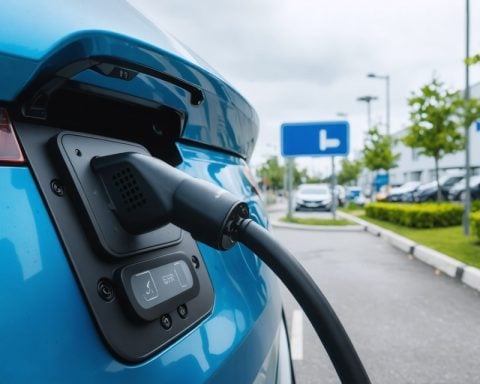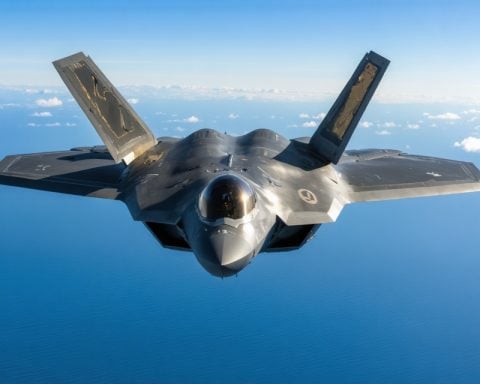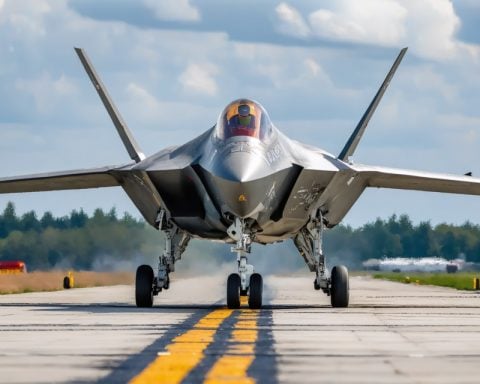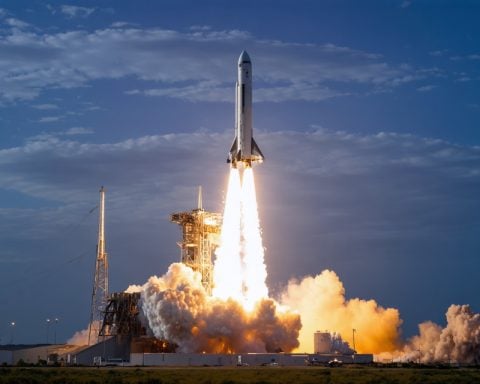In a significant move, the U.S. government has greenlighted a multi-billion dollar armament sale to Saudi Arabia and the United Arab Emirates. This initiative underscores the Biden administration’s commitment to strengthening ties with these nations, which play a vital role in mitigating Iranian influence in the region.
The transaction, valued at over $1 billion, includes a variety of advanced weaponry such as Hellfire missiles, Sidewinder missiles, and assorted ammunition for tanks and machine guns. This decision follows the lifting of restrictions on offensive weapons sales to Saudi Arabia, a strategic action aimed at encouraging the nation to de-escalate its involvement in the Yemeni conflict against the Houthi rebels.
Heightened tensions in the Middle East have emerged as the Houthis increase their attacks, particularly affecting commercial vessels in the Red Sea. This surge in hostilities aligns with recent events, including the Hamas attacks on Israel in early October 2023. Notably, both groups are believed to receive backing from Iran, intensifying the regional conflicts.
Additionally, a potential sale valued at $1.2 billion has been announced for advanced guided-rocket systems and ATACMS missiles, alongside training and support for the UAE. Unless Congress intervenes to halt these transactions, both nations will move forward with contract negotiations with U.S. defense contractors, notably those like RTX Corp. and Lockheed Martin Corp., who manufacture key components of the arms being acquired.
Impact of U.S. Military Sales on Middle Eastern Stability
The recent multi-billion dollar arms sale by the U.S. government to Saudi Arabia and the United Arab Emirates (UAE) is poised to have significant ramifications for people, communities, and the geopolitical landscape of the Middle East. This controversial decision, amid rising tensions in the region, raises questions about the balance of power and the potential for escalation of conflict.
Increasing Military Capabilities
The arms deal, which includes sophisticated weaponry such as Hellfire and Sidewinder missiles, is set to enhance the military capabilities of these Gulf nations. The U.S. hopes that providing advanced military hardware will enable Saudi Arabia and the UAE to better defend against Houthi attacks, especially those targeting commercial vessels in the strategically vital Red Sea. The increased military support may offer these nations a sense of security, but it also places local communities at risk of becoming collateral damage in intensified military engagements.
Societal Impacts and Civilian Safety
As conflicts escalate due to enhanced military capabilities, civilians often bear the brunt of the violence. In Yemen, the prolonged conflict has already led to a humanitarian catastrophe, with millions facing food insecurity and lack of access to healthcare services. The availability of more advanced weaponry can deepen the cycle of violence, leading to a higher number of civilian casualties. The question remains: how much protection does advanced weaponry truly provide when the civilian population is at risk of military reprisals?
Geopolitical Ramifications
This arms sale can also be seen as part of a broader strategy to counter Iranian influence in the Middle East. The support of Saudi Arabia and the UAE plays a crucial role in U.S. foreign policy, particularly as these nations work to combat groups like the Houthis and Hamas, which are perceived as Iranian proxies. However, this action may disturb the balance of power, prompting Iran to bolster its support for allied groups, potentially leading to an arms race in the region and further instability.
Controversies and Reactions
The decision to sell arms has been met with significant criticism, both domestically in the U.S. and internationally. Opponents argue that these sales contravene humanitarian principles, particularly given Saudi Arabia’s involvement in the Yemen conflict. Non-governmental organizations have raised concerns about the moral implications of supporting nations that might use American-made arms against civilians. Critics argue that the U.S. risks being complicit in human rights violations.
On the other hand, proponents of the arms sale argue that failing to equip allies like Saudi Arabia and the UAE could create a power vacuum, allowing hostile entities to thrive and potentially threatening global stability. The debate continues to highlight the complex interplay between defense policy, humanitarian concerns, and international alliances.
A Complex Path Forward
As the situation evolves, the relationships between the U.S., Saudi Arabia, and the UAE will be crucial in determining the future of peace and stability in the region. Continued dialogue around arms sales, military support, and humanitarian efforts will be essential to ensure that actions do not exacerbate existing conflicts or lead to a further deterioration of the humanitarian situation in areas like Yemen.
For those wishing to delve deeper into the ongoing implications of U.S.-Middle Eastern relations, visit U.S. State Department for insights on foreign policy, or check out United Nations for updates on humanitarian efforts and conflict resolutions.
The article has been updated: 2024-11-02 20:26
1. U.S. Department of Defense – Official government website providing news and updates on military actions and support initiatives.
2. U.S. Department of State – The main site for U.S. foreign policy, including relations with Middle Eastern allies.
3. C-SPAN – Offers live coverage and archives of government proceedings and hearings, including military support discussions.
4. BBC News – Comprehensive news coverage, including international military relations and U.S. involvement in the Middle East.
5. Reuters – A leading global news organization providing reports on military developments and alliances in the Middle East.
6. Al Jazeera – Offers in-depth coverage of Middle Eastern affairs, including U.S. military support and regional dynamics.
7. The New York Times – Renowned publication that reports on global news, including U.S. military strategy and foreign relations.
8. The Washington Post – Major news outlet that covers U.S. military policies and alliances in the Middle East.
9. Foreign Affairs – A leading forum for discussions on foreign policy where you can find articles on military support and international relations.
10. Center for Strategic and International Studies (CSIS) – A think tank providing analysis and strategical insights on defense and international relations, including U.S. involvement in the Middle East.
The article has been updated: 2024-11-05 23:24
What prompted the U.S. to invoke military support for its key allies in the Middle East?
The U.S. invoked military support for its key Middle Eastern allies in response to escalating regional tensions, particularly threats from hostile state and non-state actors. This decision was driven by a need to reinforce defense cooperation, ensure the stability of critical partners, and safeguard U.S. interests in the region. Additionally, the U.S. aimed to deter aggression and enhance the military capabilities of its allies, particularly in light of recent conflicts that could destabilize the area further.







